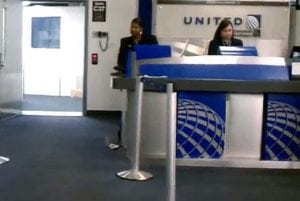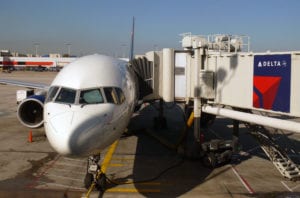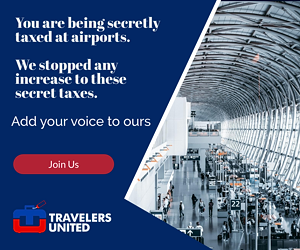Most frequent airline travelers have been barely on one side or another of the final-boarding rule, or “10-minute rule.”
 While flights have a scheduled departure time, there is an unwritten final-boarding rule. The gate agent will often close the door to the plane 10 minutes before departure which, depending on what side of the door you’re on, can either mean a huge sigh of relief or a delayed or even ruined trip.
While flights have a scheduled departure time, there is an unwritten final-boarding rule. The gate agent will often close the door to the plane 10 minutes before departure which, depending on what side of the door you’re on, can either mean a huge sigh of relief or a delayed or even ruined trip.
Sometimes it’s the passenger’s fault, either for checking in late or dawdling in the airport. On other occasions, it’s because of a late connection. But, the most maddening thing is that the final-boarding rule isn’t consistently applied.
Last week, two persistent travelers ended up on the wrong side of the door with this final-boarding rule.
The first involved a United Global Services passenger, the airline’s highest frequent flier rank. The frequent flier got to the airport seven hours before his scheduled red-eye and barely in time for stand-by on an earlier flight.
The arbitrary “final-boarding rule” applies at all times

In the second case, a United 1k (100,000 miles a year) traveler landed late into Denver on a connection from Washington, D.C., to Bozeman. He still had about 15 minutes to spare, was upgraded, and was only three gates from his connecting flight.
So, while he felt confident, the traveler still raced off the plane and to his connecting gate. While the plane had not departed, he was told he had just missed the cut-off. Again, they had closed the door to the ramp early. Even with the last flight of the night, he was a victim of the final-boarding rule. So, he ended up spending the night in Denver. (United did at least pay for his hotel.)
ALSO ON TRAVELERS UNITED: Why big passengers are creating havoc in planes
Why can’t the boarding rule be consistent?

While these clients both missed flights, I’ve had situations where the planes were held and have been on flights delayed for connecting passengers. (In more than one case, just for one or two people.) There doesn’t seem to be a consistent pattern.
Moreover, airport reservations agents’ departure boards aren’t updated with actual real flight times. Sometimes, a flight that shows boarding can be closed. More than once, I’ve gone to a gate where it’s less than 10 minutes before departure and the door is still open.
READ ALSO: 4 ways to make airplane boarding announcements more useful
(The last time, when I thought I’d missed a connection in Denver, I ran at top speed, only to have the gate agent laugh and ask, “What’s your hurry?,” adding, “We wouldn’t leave without you.”)
Why won’t gate agents bend the 10-minute rule?
I can understand why United wanted to close the door on the Denver flight. It was already over an hour late, although I have to wonder — with empty seats and a valued customer, would it have made that much difference? The traveler had an upgraded first-class seat on the sold-out redeye flight as an added inducement to United. They no doubt could have used that seat.
One thought is that the crew could have been reaching their maximum hours. United may have needed to close the door or get a new crew. If so, presumably, the gate agent could have easily told the traveler.
The Denver to Bozeman flight problem makes less sense. It was the last flight of the day. It was United’s delay that made the connection tight. And the connecting plane left on time, so it was less likely to be a crew issue.
Travelers understand that “stuff happens.” Just tell us.

In a perfect world, I’d love to see some approximate standards for holding flights — especially the last flight of the night to anywhere — or at least more communication.
However, even a travel agent or reservations agent can’t know when an airline door will slam shut. Even with access to up-to-date departure information, agents still can’t tell when an airline door will be closed. Or even when it is already closed.
When it is within your control, run, don’t walk, to the gate.
My rule: Ten minutes before departure is when getting on a plane is no longer within your control. It’s better to sit or stand around the gate area waiting to board. Don’t be looking for another flight or a hotel room.
So while it is within your control, run, don’t walk, to the gate.

READ ALSO:
Use emergency expert advice. Don’t take Facebook meme advice when lost or stranded!
Why photographing through glass is a traveler’s challenge
Janice Hough is a California-based travel agent a travel blogger and a part-time comedy writer. A frequent flier herself, she’s been doing battle with airlines, hotels, and other travel companies for over three decades. Besides writing for Travelers United, Janice has a humor blog at Leftcoastsportsbabe.com (Warning, the political and sports humor therein does not represent the views of anyone but herself.)



